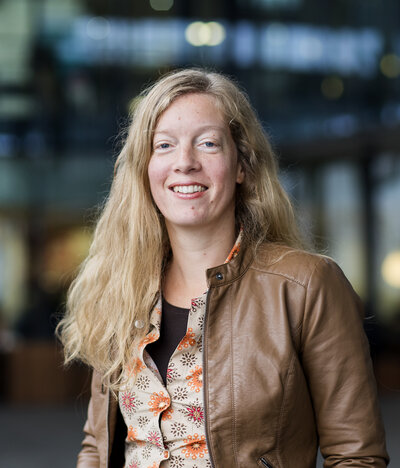Ilja Voets
Department / Institute

RESEARCH PROFILE
Ilja Voets leads an interdisciplinary team of chemists, physicists, biologists, and engineers, studying self-assembly processes in (biological) soft matter. The goal of the Voets research group is to gain fundamental insights in these processes and translate them into rational design strategies for novel functional soft materials. Voets is interested in colloidal self-organization, polymer assembly and folding, and protein biophysics. She studies how to control intra- and intermolecular copolymer assembly to reveal key structure-property relations, to package fragile biomolecules, to develop artificial enzymes, to enhance colloidal stability and to tailor smart materials. She has a particular fascination for ice-binding proteins (IBPs) that help fish, insects, and plants survive in extreme environments at subzero temperatures. Another key research challenge is to orchestrate colloidal self-assembly with remote cues such as light and temperature.
To most organisms crystallization of water into ice is lethal. I am fascinated by the way antifreeze proteins protect against damage and want to develop new macromolecular antifreezes for sensitive soft materials.
ACADEMIC BACKGROUND
Ilja Voets studied Molecular Sciences at Wageningen University & Research, where she obtained her PhD (cum laude) in 2008 at the Laboratory of Physical Chemistry and Colloid Science under supervision of dr. Arie de Keizer and prof. Martien A. Cohen Stuart. Her PhD thesis focused on micellisation in dilute aqueous solutions of two oppositely charge double hydrophilic block copolymers. From 2008-2011 Voets was a postdoctoral researcher at the AldolpheMerkle Institute of the University of Fribourg (Switzerland). In 2011 she started as assistant professor (tenure track) in Physical Chemistry at Eindhoven University of Technology (TU/e), at the Department of Chemical Engineering and Chemistry and the Institute for Complex Molecular Systems. Since 2018 she is a full professor at TU/e.
Key Publications
-
Roderick P. Tas,Ilja K. Voets
Nanoscopy of single antifreeze proteins reveals that reversible ice binding is sufficient for ice recrystallization inhibition but not thermal hysteresis
Proceedings of the National Academy of Sciences of the United States of America (PNAS) (2023) -
Chendan Li,Jose R. Magana,Fabian Sobotta,Junyou Wang,Martien A. Cohen Stuart,Ilja K Voets
Switchable Electrostatically Templated Polymerization
Angewandte Chemie - International Edition (2022) -
Dylan L. Atkins,J. Rodrigo Magana,Christian C.M. Sproncken,Jan C.M. van Hest,Ilja K. Voets
Single Enzyme Nanoparticles with Improved Biocatalytic Activity through Protein Entrapment in a Surfactant Shell
Biomacromolecules (2021) -
L.L.C. Olijve,K. Meister,A.L. DeVries,J.G. Duman,S. Guo,H.J. Bakker,I.K. Voets
Blocking rapid ice crystal growth through nonbasal plane adsorption of antifreeze proteins
Proceedings of the National Academy of Sciences of the United States of America (PNAS) (2016) -
M. Gerth,I.K. Voets
Molecular control over colloidal assembly
Chemical Communications, ChemComm (2017)
Current Educational Activities
Ancillary Activities
- Associate editor ACS Nano, American Chemical Society